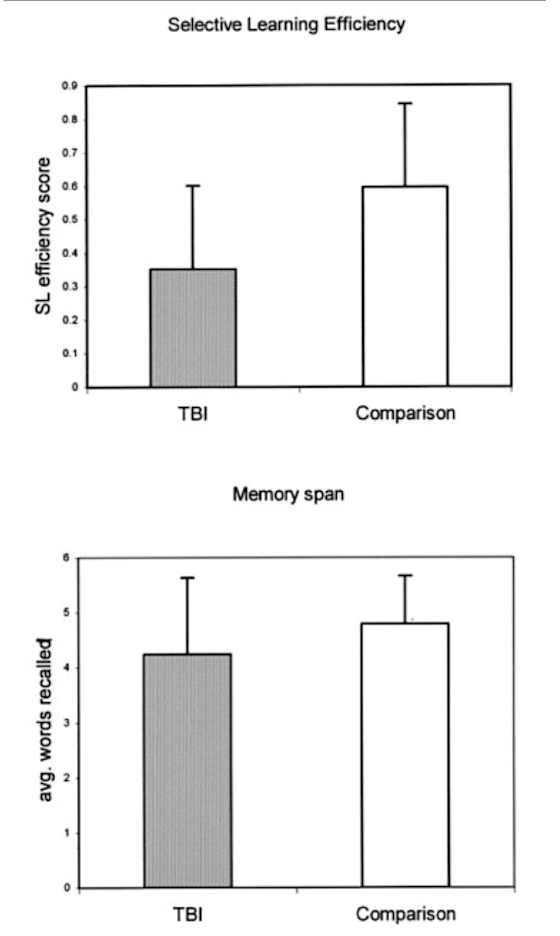Overview
In typically developing children, the ability to exhibit selectivity in learning, especially when the importance of items is variable, is an essential skill in the academic setting. However, following a traumatic brain injury (TBI), children have difficulty selecting the important items to remember but do not differ from their healthy peers in the number of items remembered. In order to examine the differences in selective learning between injured and uninjured children, a procedure involving a list of words was devised. The children were instructed to score as many words as possible throughout the task with some words being worth 1 point and others being worth 10 points. It was seen that children with TBI perhaps have impairments in their response to incentive and cognitive control over selective learning as seen in their lower overall points scored in the task; however, they were able to recall a similar number of words compared to their peers.
Figure 1, displays that the number of words recalled between the injured and uninjured children was similar, but the points earned throughout the task were significantly different.


